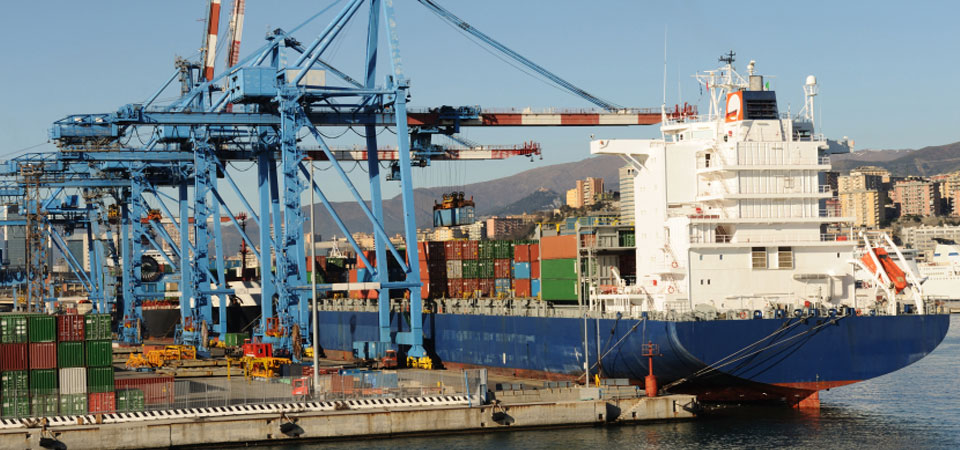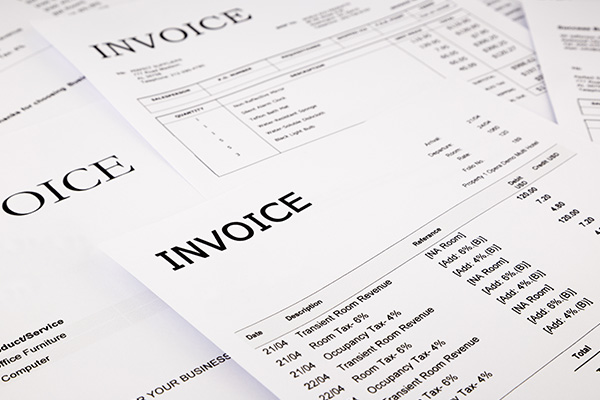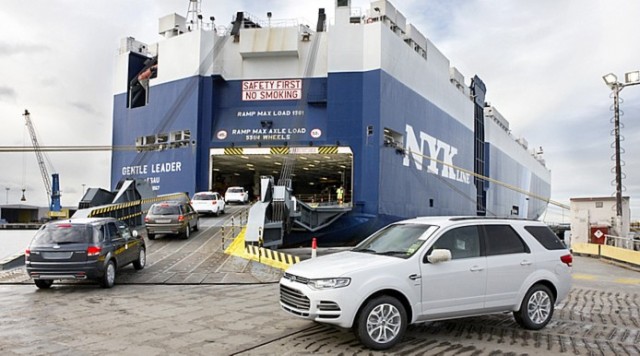Understanding Import Regulations for Vehicles from the UK: A Comprehensive Guide
Importing a car from the UK to Kenya can be an interesting experience, offering benefits such as cost savings, and access to specific car models not available in Kenya. However, it is very important to understand the import regulations to ensure a smooth and simple process regarding UK car imports to Kenya. Each country, just like Kenya, has its own set of rules and requirements for importing vehicles, ranging from safety standards to emissions regulations and customs procedures. This comprehensive guide will provide you with a clear and detailed understanding of the import regulations for vehicles from the UK to Mombasa, Kenya, or any other country around the World, to help you navigate the complexities and make informed decisions.
Import Regulations for Vehicles from the UK

Researching Import Regulations
1.1 Importance of Research:
To import cars from the UK to Kenya, it is necessary to conduct comprehensive research and become familiar with the car import regulations of Kenya. This will offer you valuable insights into the specific requirements, restrictions, and necessary procedures involved in the car import process. Take your time to understand these import regulations to ensure a smoother and more compliant experience when importing a car from the UK to Kenya.
In addition to researching the import regulations, it is recommended to consult with customs agents or experts such as the UK RoadRunner who specialise in UK car imports to Kenya. Their expertise will provide valuable guidance and provide you with the most up-to-date information on the car import process.
1.2 Safety and Emissions Standards:
Most countries have safety and emissions standards that imported vehicles from the UK must meet. Research the specific standards of your destination country such as the presence of airbags, seat belts, or anti-lock braking systems, and make sure that the vehicle you intend to import aligns with them.
Additionally, ensuring that the vehicle aligns with the emission standards set by the destination country is essential to comply with environmental regulations. Consult with local authorities or Car Importing companies such as UK RoadRunner to provide you with further guidance on the specific safety and emissions standards applicable to imported cars. Lastly, conduct thorough inspections and obtain relevant certifications to help you ensure that the vehicle meets the required standards before importing it to the destination country.
1.3 Vehicle Eligibility:
Some countries have particular restrictions on the age, model, and type of vehicles that are eligible for importation. Some might only accept vehicles under a specific age, while others may prohibit the importation of Right Hand Drive vehicles. To prevent any challenges or difficulties, confirm the requirements for importing cars to your destination country.
If you are in Kenya, consider the following criteria when importing vehicles from the UK:
- Age Limit: The maximum vehicle age limit for imported cars is eight years from the year of manufacture.
- Right-Hand Drive Vehicles: Only Right Hand Drive vehicles are allowed to be imported into Kenya.
- Model and Type Restrictions: While there may not be specific restrictions on vehicle models or types, researching any regulations of car parameters, including engine capacity or size, that can affect the import procedure is advised. Additionally, make sure the car has all the required safety equipment, including airbags, seat belts, and anti-lock brake systems, and that it conforms with safety regulations.
To ensure compliance with the eligibility criteria for importing vehicles to Kenya from the UK, it is recommended to consult with the relevant authorities, such as the Kenya Revenue Authority (KRA), UK RoadRunner which is the best UK car importer agency in Kenya, and the National Transport and Safety Authority (NTSA).
Documentation and Paperwork

2.1 Vehicle Title and Ownership:
Before you import a car from the UK, make sure that you have the original vehicle logbook or ownership documents since they will be required during the UK car import process. These required documents should be in your name or appropriately assigned to you if you are purchasing the vehicle.
2.2 Bill of Sale and Commercial Invoice:
A bill of sale is a legal document providing proof of the purchase of the vehicle. It should contain the buyer and seller’s information, vehicle identification number (VIN), purchase price, and date of sale. A commercial invoice is crucial if you are importing the car for commercial purposes instead
2.3 Customs Declaration and Import Forms:
It is crucial to correctly fill out the import and customs declaration paperwork when you intend to import a car from the UK. These documents include details on the vehicle, its worth, and your intention of importing it. To prevent any delays or fines throughout the import procedure, it is essential to pay close attention to detail and make sure the forms are completed accurately. To make sure you have all the required paperwork in order, check that you adhere to the instructions given by the Kenya Revenue Authority (KRA) or get advice from UK RoadRunner, the best UK car importer in Kenya.
The documents required for importation of motor vehicles and clearance through Customs include:
- Original Commercial Invoice.
- Original Bill of Lading.
- Import Declaration Form obtained from Customs.
- Original Logbook from the country of origin.
- Certificate of roadworthiness
2.4 Vehicle History and Inspection Reports:
Get a vehicle history report, which offers important details on the history of the vehicle, such as accidents, maintenance records, and previous owners. A pre-shipment inspection report could also be necessary in some countries to confirm the vehicle’s roadworthiness and adherence to safety regulations.
This check verifies that the vehicle satisfies safety requirements and is fit for use on public roads. It is advised to collaborate with QISJ companies to secure a roadworthiness certificate, which attests to the car’s passing all required safety checks.
Duties, Taxes, and Fees
3.1 Import Duties and Taxes:
Import duties and taxes vary from country to country and are typically based on the vehicle’s value, make, and model. Research the applicable duties and taxes in your destination country to determine the financial implications of importing the vehicle. Some countries may offer exemptions or reduced rates for certain types of vehicles or for residents returning after living abroad.
Import duties and taxes in Kenya are determined by the Kenya Revenue Authority (KRA). The duty payable depends on various factors, including the vehicle’s value, engine capacity, age, make, and model. KRA uses the Customs Value method to assess the vehicle’s value, which includes the cost of the vehicle, insurance, and freight charges (CIF value). Additionally, the KRA provides duty exemption or reduced rates for certain categories of vehicles, such as electric vehicles or those designed for the physically challenged. To calculate the specific import duty and taxes for your vehicle, you can use the KRA’s online car import duty calculator.
3.2 Value Added Tax (VAT):
Value Added Tax (VAT) is a common tax imposed on goods and services in many countries. Determine if your destination country applies VAT to imported vehicles and factor it into your budget.
VAT applies to imported vehicles in Kenya at the standard rate of 16%. VAT is calculated based on the sum of the customs value, import duty, excise duty (if applicable), and other charges related to the importation process.
3.3 Other Charges:
In addition to KRA car import duty, there are other charges involved in importing a car from the UK to Kenya. These can include:
- Excise Duty: Some vehicles may be subject to excise duty, which is calculated based on the vehicle engine capacity, type, and age using the car import duty calculator. The KRA provides specific rates for various types of vehicles.
- Customs Clearance Fees: The administrative expenses related to getting the car through customs are paid for by these fees. The cost of clearing customs might vary according to the importation’s complexity and value.
- Port Handling Charges: The port authorities apply handling fees upon the vehicle’s arrival at the port. These fees pay for the port’s handling, storage, and further services.
- Storage Fees: Storage fees can apply if the car is not immediately released from the port. These charges are made based on how long the car stays at the port.
It’s necessary to consult with a car importer company (UK RoadRunner), freight forwarders, or the Kenya Ports Authority for more particular information on the fees applicable to your specific importation
Transportation and Logistics
4.1 Shipping Methods:
Select the ideal shipping method for transporting your vehicle from the UK to your destination country. Consider factors such as the cost of importing a car to Kenya, transit time, and the level of protection provided. Shipping methods for importing cars from the UK to Kenya include Roll-on/Roll-off (Ro-Ro) shipping, container shipping, or air freight.
4.2 Shipping Insurance:
To safeguard your investment when importing a vehicle from the UK to Kenya, it is crucial to obtain shipping insurance. Shipping insurance offers financial protection in the event of damage or loss during importation. It is necessary to carefully review and select an insurance policy that adequately covers the full worth of the vehicle being imported.
When considering shipping insurance for your car to Kenya, there are a few important points to keep in mind:
- Coverage: Verify that the insurance policy provides full coverage for any risks that could arise during transit, including theft, accidents, natural disasters, and other situations that could cause damage or loss to your car being imported.
- Valuation: Before acquiring insurance coverage, it’s essential to ascertain the exact value of your car. To guarantee appropriate reimbursement in the event of an unfavourable incident, the insurance policy should reflect the entire value of the car.
- Insurance Provider: Choose an insurance company that is trustworthy and has experience with shipping insurance. Seek out insurers with a history of dependable service and timely claim settlements who specialize in international auto shipping.
- Policy Terms and Conditions: Go over the insurance policy’s terms and conditions carefully. Be mindful of any limitations, deductibles, or exclusions that might apply to your policy. If there are any questions, it is best to ask the insurance company to clarify them.
- Documentation: Save any pertinent records about your car, such as purchase invoices, pictures, and condition reports. If an insurance claim is made, these records may be helpful.
4.3 Customs Clearance and Brokerage Services:
When importing a vehicle from the UK to Kenya, the customs clearance process can be complex and involves adherence to some regulations. To ease this complexity, it is recommended to engage the services of a customs broker or freight forwarder such as the UK RoadRunner which specializes in vehicle imports from the UK. These professionals can provide valuable assistance with documentation, customs clearance, and ensuring compliance with import regulations.
Conclusion:
To wrap it up, while importing a car from the UK to Kenya or another destination, it is critical to have a solid understanding of the import regulations. Make sure you have all the paperwork needed, research the ins and outs of the regulations that apply to your country, and keep an eye out for any applicable duties, taxes, and fees. For assistance navigating the customs process and guaranteeing regulatory compliance, consulting with freight forwarders or car importers such as the UK RoadRunner might be helpful. You can successfully import your car from the UK while meeting all the standards according to these instructions, and you can also experience the pleasure of having a car imported from the UK.
